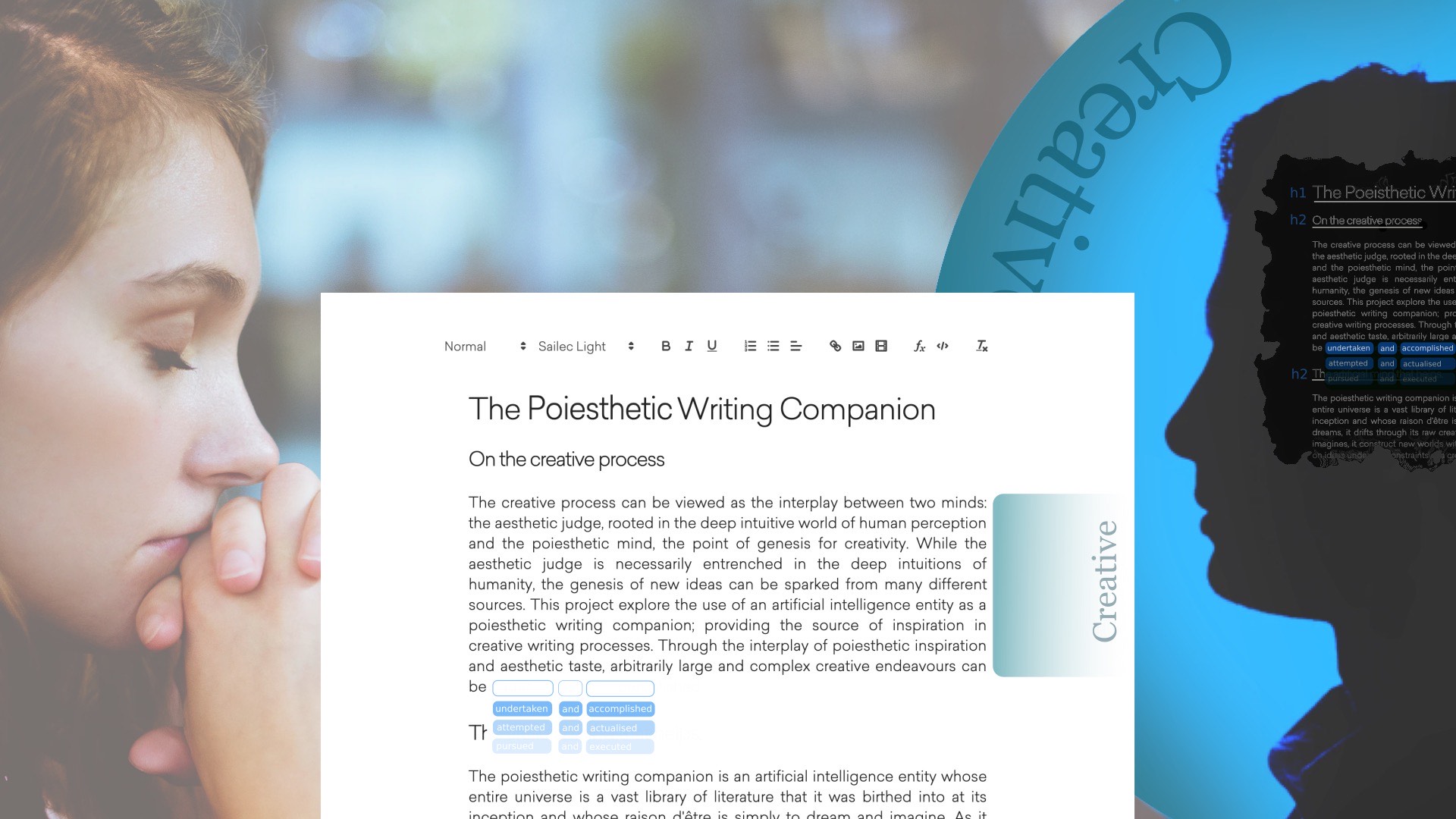On the creative process
The creative process can be viewed as the interplay between two minds: the aesthetic judge, rooted in the deep intuitive world of human perception and the poiesthetic mind, the point of genesis for creativity. While the aesthetic judge is necessarily entrenched in the deep intuitions of humanity, the genesis of new ideas can be sparked from many different sources. This project explore the use of an artificial intelligence entity as a poiesthetic writing companion; providing the source of inspiration in creative writing processes. Through the interplay of poiesthetic inspiration and aesthetic taste, arbitrarily large and complex creative endeavours can be undertaken and accomplished.
The artificial mind that helps
The poiesthetic writing companion is an artificial intelligence entity whose entire universe is a vast library of literature that it was birthed into at its inception and whose raison d’être is simply to dream and imagine. As it dreams, it drifts through its raw creative potential unconstrained and as it imagines, it construct new worlds with purpose, to help refine and expand on ideas under the constraints of a creator.
The shape of the machine
The problem of modelling language and subsequent generation of text has made huge strides in recent years. This is in part due to the increasingly sophisticated exploration of technical solutions, the availability of masses of data and the increase in raw and affordable computing power. This trend will only continue. While text generation continues to improve, the question about what shape this technology should take to be useful in day to day applications is still an open frontier.
Text editors provide various writing assistance: auto-complete in mobile technology, dictionaries, thesauruses, spelling correction and basic grammar correction. However, these have little to do with the creative process of writing itself. Though natural language processing has given us impressive text generation models, it is unclear how a writer would incorporate them into their creative writing processes. In this project we argue that the current goals of artificial intelligence research as a whole and the requirements of a human writer are currently not aligned. The machine needs to be reshaped to assist human writers.
The user experience
To a reader, the only artefact of a writer’s mind is the final text itself. However, while writers work, they construct layer upon layer of scaffolding – context that is laid down to enable the construction and elaboration of ideas as text. A poiesthetic companion needs to understand this context to be able to share the writer’s mind. This requires a new way of incorporating the landscape of the creator’s mind into text editors so that poiesthetic companions can internalise aesthetic judgements of the creator and spark new ideas to fuel creativity.



